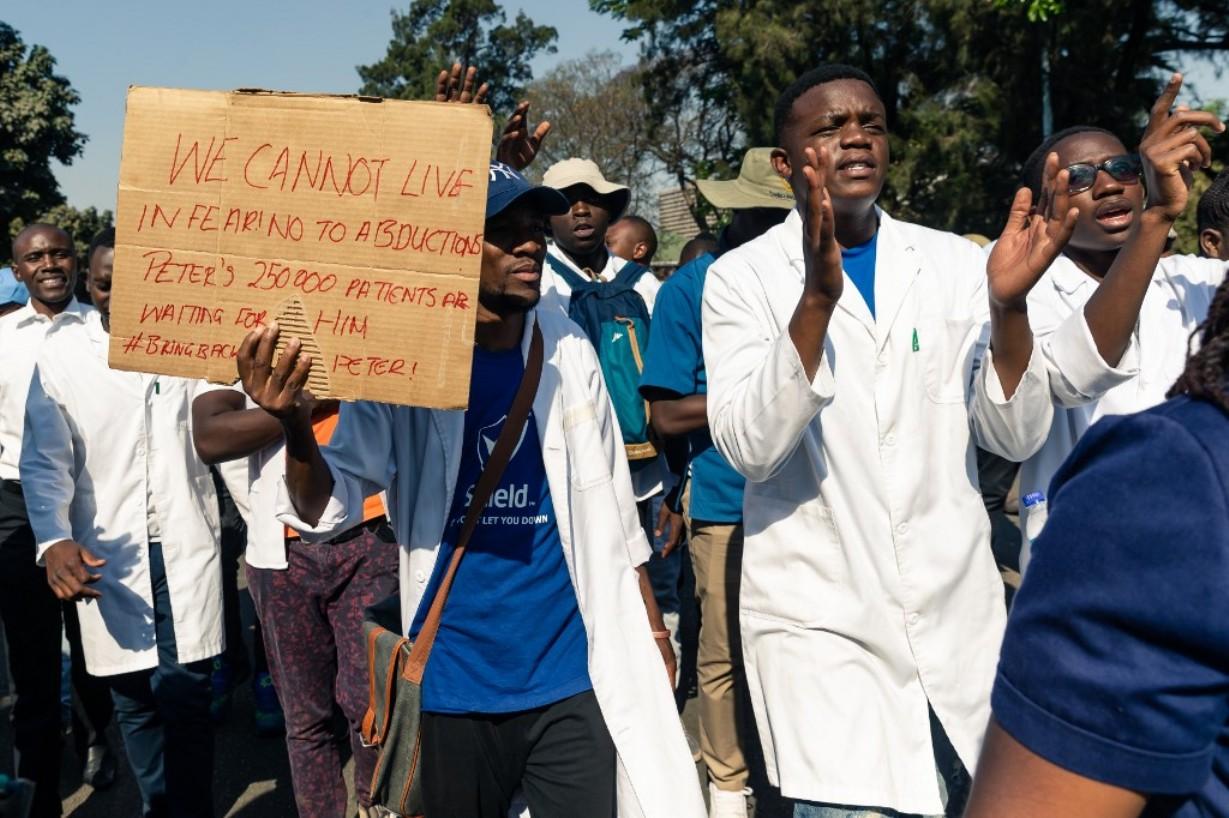Nigeria’s Minister of Health, Osagie Ehanire has pleaded with the striking doctors in the National Association of Resident Doctors (NARD) to consider the situation that embarking on industrial action in the midst of the third wave of the COVID-19 pandemic and the arrival of Delta variant, a cholera outbreak in 22 states and the Marburg virus (similar to Ebola) outbreak is dangerous and unconscionable.
The minister insisted that the Federal Government will apply the International Labour Organization’s policy of ‘No Work, No Pay’ if the doctors insist on carrying on with the strike, stressing that they will not be paid from tax payers for doing nothing.
However, the minister denied threatening to sack resident doctors who withdrew their services nationwide since August 2 over alleged poor conditions of service, explaining that all the engagements and consultations so far have been to appeal to them to call off the strike.
Ehanire stated these on Thursday at the Presidential Villa, Abuja, during the 18th ministerial briefing organised by Presidential Communication Team.
According to the minister, a majority of the demands being raised by the striking doctors were under the jurisdiction of state govermments.
Read Also: Why I Won’t Meet With Striking Resident Doctors – Ngige
As senior doctors working as consultants in the health sector threatened to join the strike on Monday, the minister disclosed that most of the 12 demands raised by doctors have been met by government.
The NARD had insisted that its latest strike is indefinite until government attends to their demands.
Ehanire, speaking on the strike, said: ‘We have said openly that this is not a good time for doctors to go on strike. We’re having a strike for the third time this year that is not good. We have appealed to them. We have been having long meetings with young doctors to tell them that look we have a certain responsibility to our country. Every country that have difficult situation at this time should understand the that responsibility is on all of us if you have any problem, any grudge let’s talk about it. If we can’t solve it now, let’s continue talking about it until we fine solution but don’t drop work.
‘I think Nigeria is probably the only country in the world today where doctors are dropping work in the middle of a threat to the whole country. So that’s what we have advised. There has been no threat. Nobody threatened anything. We are just appealing, all of us are doctors, all of us went through the same residency. We’re saying this is not the time let’s continue to talk about it. Do not put people’s lives at risk. That’s what the Minister of Labour has been saying, that is what the Minister of Health has been saying. Nobody has threatened anybody with anything.’
When reminded of the threats of no work no pay, he said: ‘Yes, but that’s a standard thing. That’s International Labour Organisation (ILO) recommendation that if you did not work, then why will you take…your salary comes from taxpayers money. So if you did not work, why should you be paid? Because if that is so you can be encouraged to stay home for six months and your salary is running from public funds, from taxpayers money, when you have not given the community any service.
‘So that no work, no pay is not just the government regulation is recommended, it is specifically stated in International Labour Organisation that if you do not work, if you have not given any service, you can’t expect regulation. Because you can’t go to market and buy something for nothing. You must put down something, you must put down work.
‘You cannot go to market and take goods without paying. So if you work, you will be paid. And we are strongly in support of government meeting it’s obligations to pay what is agreed. We have said that we shall push for that, you know, working with the salaries and wages commission, the head of service, we are working to support that including paying all the insurance dues.
‘But we cannot go against what the ILO says, pay people that did not go to work. I mean, I think before God and man you can defend that position, but there is no question of threats. These young doctors are professionals, not just professionals, they are young people who we need to also mentor and treat well, to the best of all our capacity here.
‘So, the strike is not what we want now, we would like to again, use this platform to ask doctors to return to work, let us negotiate. We can do that among us. There are many areas the Ministry of Health supports them. But part of the problem we have is that some of the grudges that they have, or let us say the demands are with state governments not the Federal Government. So if the state government has not paid some people salary why go on nationwide strike?
‘We say if you want to talk to that state, which I will support you and appeal to the state. Among the 12 original demands that they made, seven were state related. They’re not federal, federal government cannot compel a state to pay you a certain salary that you want. But the ones that are concerning us at federal level, many of them are not even exactly the Ministry of Health either. But we support them and those with what strike is not a good tool to use. And especially when the health of the country is threatened, when people will come out and volunteer in other countries to work. That is not the time to withdraw your own service. And I think again, we’ll continue to appeal to young doctors not to use strike as a tool, especially at a time of national need that will not rest well on your conscience.’
AFRICA TODAY NEWS, NEW YORK
